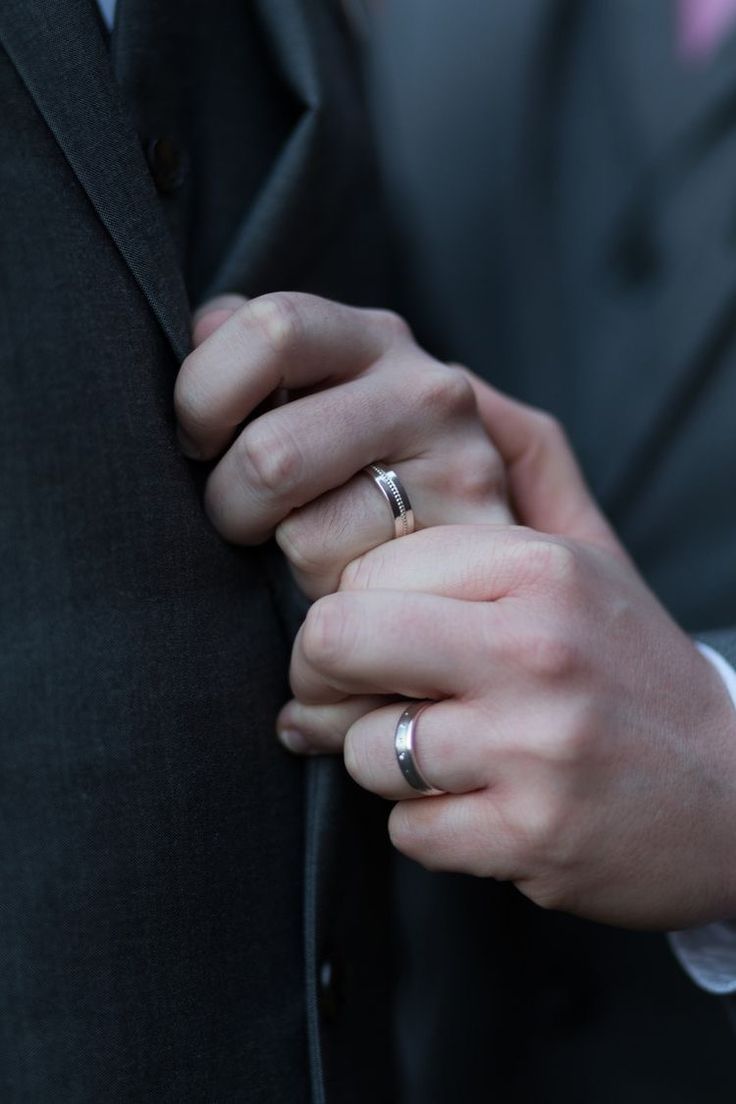For decades, a pervasive myth has circulated in the West: that of the foreign man in Japan, effortlessly charming his way through a dating scene ripe with opportunity. Fueled by anecdotal tales and media portrayals, this image suggests that being a Westerner is an automatic key to romantic success. However, a closer look, through the eyes of those actually navigating this complex landscape, reveals a starkly different reality. While the novelty of being foreign might open the first door, building a deeper, meaningful relationship is often a frustrating dance of missed cues, cultural collisions, and profound misunderstandings.
In a compelling street interview series by the YouTube channel “That Japanese Man Yuta” (with interviewer Takashi), several foreign men living in Japan shared their candid experiences. Their stories dismantle the myth of effortless romance and illuminate the specific, often invisible, hurdles they face. Far from being a simple game, dating in Japan for a foreigner is a challenging tango that requires not just charm, but immense cultural awareness, patience, and a willingness to learn a completely different set of steps. The primary struggles they encounter are not about a lack of interest, but about the deep-seated cultural differences in relationship progression, communication styles, the paradoxical nature of foreign appeal, and mismatched daily expectations.
The “Kokuhaku” Conundrum: The Great Confession Divide

Perhaps the single greatest procedural and philosophical hurdle for a Western man in Japan is the concept of kokuhaku (告白), the confession of love. As an Australian man who has lived in Japan for three years explained to Takashi, dating in Japan is a “very formal thing.” This formality is epitomized by the kokuhaku.
In the West, dating is typically an exploratory process. Two people go on a series of dates—dinner, a movie, a walk in the park—to get to know each other. The relationship evolves organically. The transition from “casually seeing each other” to “exclusive” might be marked by a conversation, but it often happens subtly over time, after both parties feel a confirmed connection. As the Australian noted, “In Australia, we kind of do a couple of dates first, and then we talk about what the relationship is… or sometimes we don’t even talk about it at all, it just goes with the flow.”
This “go with the flow” approach is the antithesis of the Japanese dating script. In Japan, the kokuhaku acts as the formal starting line of a relationship, not the finish line of a courtship. Typically after two or three dates, one person is expected to formally confess their feelings with a phrase like, “Suki desu. Tsukiatte kudasai” (“I like you. Please go out with me.”). Only after this confession is accepted are the two individuals officially considered a couple—boyfriend and girlfriend.
For a foreign man, this is often bewildering. A half-Japanese man from Brooklyn articulated this sentiment perfectly, stating that the confession rule “freaks out a lot of foreign people,” and admitted, “I think that’s one of the reasons why I’ve been a little scared to try it.” The pressure to define a relationship so early can feel like a premature and high-stakes commitment. After just three dates, a Westerner might still be figuring out if he even enjoys the person’s company, let alone if he has romantic feelings strong enough to warrant a formal declaration.
This cultural chasm creates a potent recipe for misunderstanding. A Japanese woman, adhering to her cultural script, may be waiting for the kokuhaku as a sign of the man’s sincerity and respect. If it doesn’t come after the third date, she may conclude he is not serious, is just playing games, or sees her as a casual fling. From her perspective, his hesitation is a rejection. Meanwhile, the foreign man, operating on his own cultural script, feels that a confession would be insincere and rushed. He wants to let things develop naturally, but his inaction is misinterpreted. He feels pressured to make a commitment he’s not ready for, while she feels disrespected by his lack of clarity. This fundamental difference in procedure often dooms potential relationships before they even have a chance to begin.
The Language of Love and Misunderstanding
Beyond the structural challenges lies the formidable barrier of communication. A man from Denmark, in Japan for six months, highlighted this issue, explaining that he primarily uses the dating app Bumble because it allows him to filter for partners who speak English. He admitted that the language gap makes it difficult to connect with Japanese women who aren’t fluent in English, as he himself doesn’t speak Japanese. His experience is a microcosm of a much larger issue that extends beyond mere vocabulary.
The literal language barrier is the most obvious obstacle. While translation apps can bridge simple gaps, they are woefully inadequate for conveying the nuance, humor, sarcasm, and emotional depth required for genuine intimacy. A relationship can only go so far with stilted, surface-level conversations. Jokes fall flat, serious feelings are oversimplified, and the unique personality of each individual gets lost in translation.
However, the more profound challenge is the difference in communication styles. Japanese culture is famously “high-context.” This means that a great deal of communication is non-verbal and implicit. Meaning is derived from shared context, subtle gestures, and an intuitive understanding of the situation—a concept known as kuuki wo yomu (空気を読む), or “reading the air.” People are expected to understand what is not being said. In contrast, most Western cultures are “low-context,” where communication is expected to be direct, explicit, and verbal. People are encouraged to “say what they mean and mean what they say.”
In a dating context, this is a minefield. A Japanese woman might express displeasure or disagreement through silence, a slight change in tone, or a vague, non-committal answer. She expects her partner to read the air and understand her feelings. A Western man, accustomed to direct feedback, is likely to miss these subtle cues entirely. He might take her “daijoubu” (it’s okay) at face value, not realizing it’s a polite deflection and that things are, in fact, not okay at all. His failure to “read the air” can make him appear insensitive, selfish, or clueless.
Conversely, his low-context, direct style can be perceived negatively by his Japanese partner. What he considers honest and straightforward communication—”I don’t want to go to that restaurant,” or “I’m not in the M.O.O.D to talk right now”—might come across as harsh, aggressive, or inconsiderate. In a culture that prioritizes harmony (wa, 和), such directness can be jarring. This communication disconnect creates a cycle of frustration where both parties feel unheard and misunderstood, not because of a lack of care, but because they are speaking fundamentally different socio-linguistic languages.
The “Gaijin Hunter” Paradox: A Double-Edged Sword

One of the most complex and emotionally taxing struggles for foreign men is navigating the very phenomenon that fuels the myth of their desirability: the “foreigner fetish.” An American man from Los Angeles who used to live in Japan described this pointedly. He observed that there are circles and places where Japanese women are specifically interested in foreign men, but he found the dynamic to be “scummy” and a “turn-off.” The core of his discomfort was the gnawing uncertainty: was the interest genuine, or was it simply because he was foreign?
This is the “gaijin hunter” paradox. On the one hand, a foreign man, particularly a white Westerner, often enjoys an initial advantage. He stands out. This novelty can lead to more attention, more approaches, and more matches on dating apps. This initial flattery confirms the stereotype that it’s “easy” for foreign men in Japan.
However, this advantage quickly reveals its dark side. As the American man’s sentiment suggests, it breeds deep insecurity and suspicion. Every compliment, every date, every expression of interest is filtered through a lens of doubt. “Does she like me—my personality, my humor, my values—or does she like the idea of me? Is she attracted to my blue eyes and not my character? Is this a genuine connection, or am I just a novelty, an accessory, a box to be ticked?” This internal monologue can be corrosive to a man’s self-esteem and makes it incredibly difficult to build a relationship on a foundation of trust.
This dynamic often results in relationships that are shallow and unsustainable. The connection is based on a collection of stereotypes—that Western men are more passionate, romantic (in a “Hollywood” sense), or expressive. When the reality of the individual—a normal person with flaws, insecurities, and habits—fails to live up to this idealized fantasy, the attraction can evaporate. The foreign man feels used, and the Japanese woman feels disappointed.
This ties into a subtle point made by the half-Japanese man, who speculated that Japanese women might have fewer expectations of a foreign partner. While this could be seen as a positive—less pressure to conform—it can also mean that the foreign man is not viewed as a “real” potential partner in the same way a Japanese man would be. He is kept in a separate category of “foreigner boyfriend,” an exciting but ultimately temporary diversion, not a candidate for the serious, long-term considerations of marriage and family that are often central to dating in Japan. He is both sought after and simultaneously kept at arm’s length, an exotic object but not always an integrated partner.
Mismatched Rhythms: From Scheduling to “Skinship”

Finally, the struggle manifests in the day-to-day logistics and rhythms of the relationship itself. The Australian interviewee provided two perfect examples: scheduling and physical affection.
He described the experience of planning dates as feeling like a “business meeting,” where plans had to be made a month in advance. For someone from a culture where asking a person out for “this weekend” or even “tomorrow night” is standard, this level of rigid, long-term planning for a simple date can feel stifling and devoid of spontaneity. It reflects a broader cultural difference where Japanese life, heavily influenced by demanding work schedules, is meticulously planned, while many Western cultures place a higher value on flexibility and impromptu fun.
Even more telling was his anecdote about physical affection, or skinship. He recounted how his Japanese barber, upon hearing he had a date, gave him one piece of advice: “You should hold her hand.” To the Australian, this seemed laughably trivial, something “we do in kindergarten.” Yet, in the Japanese dating context, it is a profoundly significant gesture. While a kiss might happen on a first or second date in the West with little fanfare, holding hands in Japan is often the first major physical milestone for a new couple, a public and clear signal of their relationship status.
This highlights the vastly different timetables for physical intimacy. A foreign man, acting on his own cultural norms, might lean in for a kiss at the end of a great first date, only to be met with shock and alarm. His action, which he considers a normal expression of attraction, is interpreted as moving far too fast, being overly aggressive, or treating the relationship with a lack of seriousness. Public displays of affection, common in the West, are also far more reserved in Japan. This creates a situation where a foreigner’s natural instincts for showing affection are constantly at odds with local customs, forcing him to second-guess every move and potentially come across as cold and distant if he overcorrects, or pushy and disrespectful if he doesn’t.
Conclusion: Finding the Harmony
The experience of dating in Japan as a foreign man is far more nuanced and challenging than the popular myth suggests. The street interviews with Takashi reveal a consistent pattern of struggle rooted in deep cultural differences. The formal, high-stakes nature of the kokuhaku clashes with the West’s exploratory dating style. The chasm between high-context and low-context communication breeds misunderstanding and frustration. The very novelty that makes foreign men attractive also creates a paradox of exoticism that can prevent genuine connection. And the different cultural scripts for everything from scheduling dates to holding hands create a constant, low-level friction.
The struggle, therefore, is not about a lack of opportunity, but a surplus of cultural dissonance. To succeed in finding a meaningful relationship, a foreign man in Japan must do more than simply show up. He must become a student of the culture, learning to navigate its unique social rules with patience and empathy. Success requires a willingness to communicate openly and explicitly about these very differences, bridging the gap by explaining one’s own perspective while seeking to understand the other’s. Ultimately, the romantic journey for a foreigner in Japan is inseparable from a journey of cultural education. For those who can learn the steps to this complex tango, the reward is a connection that is all the more profound for having transcended the initial, and often formidable, cultural divide.

